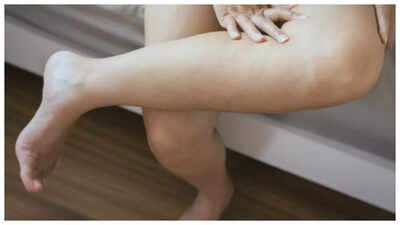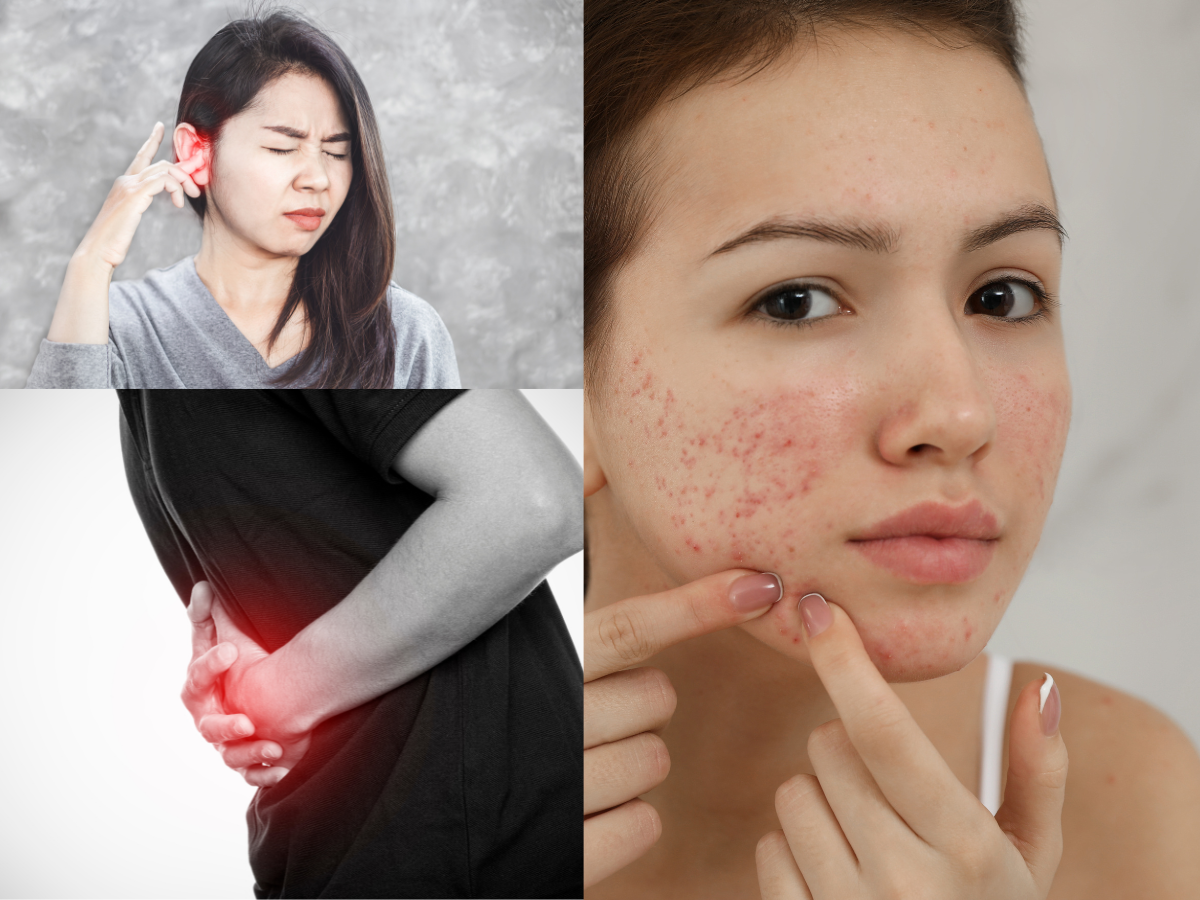
The organs of our body are constantly giving us signals when something is wrong, it is upto us to recognise them and seek medical help as soon as possible. Similarly our legs, which carry the weight of our entire body performs a lot of other functions.
Pain, cramps, tingling, swelling, or visible veins are not just minor issues - they can signify underlying hidden deficiencies or health problems. Here's how...

Pain in lower feetPain in the feet, especially in the lower part, can arise from many causes including injury, arthritis, or poor blood flow. Sometimes, it points to deficiencies such as vitamin D or B vitamins, which are essential for bone and nerve health. Vitamin D deficiency, for example, can cause joint pain and bone weakness, making your feet hurt more easily.Poor circulation due to narrowed blood vessels or peripheral artery disease can also cause foot pain. If blood flow is restricted, your feet may feel painful or tired after walking or standing. This could also be linked to underlying heart or vascular problems.Calf or Thigh CrampsMuscle cramps in the calf or thigh are common but can be more than just a post exercise discomfort. According to research, a deficiency in carnitine, a nutrient important for muscle energy production, can cause leg cramps that aggravate at night.
Carnitine helps muscles produce energy, and relax properly after contraction. Without enough of it, calcium ions in muscle cells stay high, causing painful cramps.Other mineral deficiencies such as magnesium, potassium, or calcium can also trigger cramps. This apart, dehydration or overexertion also cause harmless cramps, but they tend to resolve on their own, without treatment.Tingling Sensation in FeetA tingling sensation, that most people recognise as “pins and needles”is often related to nerve problems.
One common cause is vitamin B12 deficiency, which is important for nerve health. Without enough B12, nerves can get damaged, causing numbness, tingling, or burning sensations that can be quite uncomfortable.Other causes include diabetes (leading to diabetic neuropathy), poor circulation, or pinched nerves from spinal issues like herniated discs or sciatica. Autoimmune diseases and infections can also affect nerves and cause tingling.

Joint pain in the bodyJoint pain is often linked to arthritis or injury, but vitamin D deficiency can also cause it. Vitamin D helps maintain healthy bones and joints by regulating calcium absorption. Low levels can lead to osteomalacia (soft bones) and worsen arthritis symptoms. Bringing Vitamin D to the optimal level can provide relief from this condition.Feet SwellingSwollen feet and ankles happen when fluid builds up in the tissues, a condition called edema.
Water retention can be caused by standing for long periods, high salt intake, pregnancy, or injury or even dehydration. However, persistent swelling may indicate more serious issues like heart failure, kidney or liver disease.When blood pools in the leg veins, fluid leaks into surrounding tissues causing swelling. Reducing salt intake, resting with legs elevated, and wearing compression stockings can help. But if swelling is accompanied by pain, warmth, or redness, it could signal a blood clot and needs urgent medical attention.Varicose VeinsVaricose veins are swollen, twisted veins visible under the skin, usually in the legs. They occur when vein valves weaken, causing blood to pool. This can lead to aching, heaviness, and sometimes swelling or skin changes.Poor circulation, prolonged standing, obesity, and pregnancy increase the risk. While varicose veins are often harmless, they can sometimes cause pain and increase the risk of ulcers or blood clots. Improving circulation through exercise, weight management, and compression stockings can help.

 22 hours ago
43
22 hours ago
43




























 English (US)
English (US)